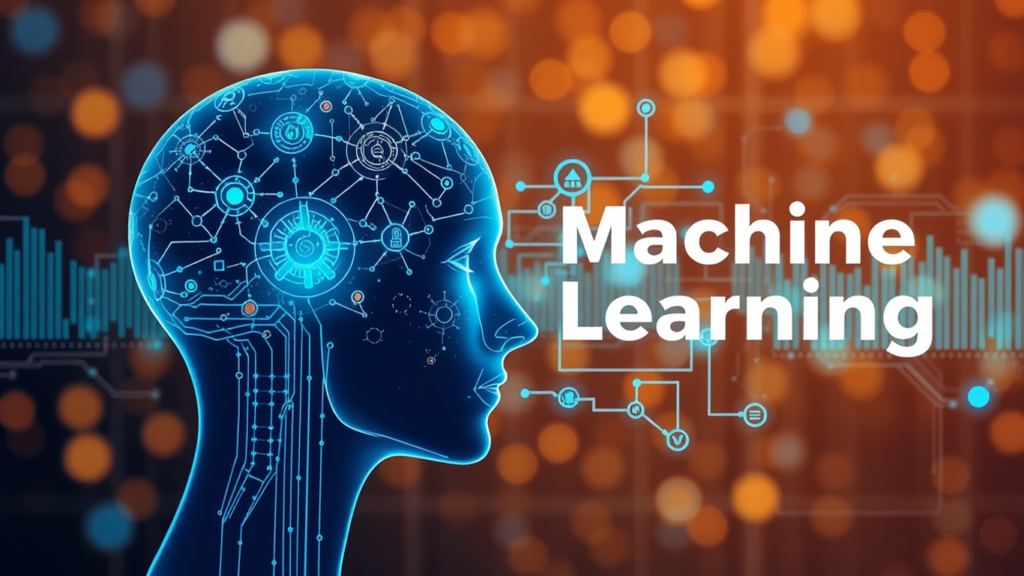Table of contents:
Artificial Intelligence (AI) and Machine Learning (ML) are transforming the development of essential products and services across various businesses and personal life settings. Many sectors are now leveraging AI/ML solutions to create and make products accessible to the average customer.
We are in an evolving world where a basic understanding of these advanced technologies can drive innovations and business growth. This guide provides a detailed overview of AI/ML, how it works, and common use cases.
Overview
Artificial intelligence refers to technologies that enable computers to mimic human intelligence and cognitive functions. This includes the human capabilities of learning, language comprehension, problem-solving, and perception. Machine learning is a subset of AI that uses algorithms to learn from data and make predictions.
So, while AI is the broader concept that enables machines to carry out tasks in a much more innovative way, ML is the model that enables them to extract data and learn from it autonomously. Together, these technologies are expanding the operations of businesses with far-reaching applications across industries. Let’s look at the breakdown of how AI and ML technologies operate.
AI/ML: How It Works
At their core, AI and ML technologies use statistical models that help machines analyze data, learn from the insights, and make accurate decisions that typically require human intelligence. Here is a simplified breakdown:
- Data Collection: The system collects relevant and quality data from multiple sources.
- Data Preparation: The data is cleaned, organized, and stored for analysis.
- Model Training: Machines use ML algorithms to learn from data, make predictions, or identify patterns.
- Model Evaluation: The system is tested to guarantee its accuracy and reliability.
- Deployment: Once it has been tested, the systems are implemented into applications for real-world users.
- Monitoring: The machines are regularly monitored and upgraded with user feedback.
Benefits and Challenges
Benefits:
- Enhanced Efficiency: AI and ML use cases in various businesses can drive efficiency in operations and improve productivity. They automate routine tasks, enabling human employees to focus on core business activities.
- Improved Decision Making: Their data-driven insights support businesses in making accurate and informed decisions.
- Cost Reduction: These technologies are also cost-effective solutions for businesses. Their automotive abilities improve efficiency, helping businesses cut down on unnecessary costs.
- Personalization: These technologies also help businesses tailor solutions to the needs and requirements of their users. This personalized experience significantly improves engagement rates.
Challenges:
- Data Quality: AI and ML technologies heavily depend on the quality of the quality of the data; low quality can affect the predictions and insights obtained, leading to inaccuracies.
- Complexity: These technologies’ complex nature requires specialized skill and expertise, which can be a challenge to some organizations, particularly startups.
- Ethical Considerations: Ethical considerations can cause biases in decision-making processes, and there may be issues regarding privacy concerns.
- Cost of Implementation: Developing and integrating these technologies is very expensive, which may deter or pose a barrier to some businesses.
Industry Examples of AI/ML Use Cases
#1 Banking and Finance
AI/ML use cases in banking are unprecedented. These technologies have transformed traditional banking systems by enhancing and optimizing secure financial operations. They analyze the financial market and identify the best times to execute beneficial trades.
Their systems identify risk patterns and fraudulent activities and notify human agents. These models are also used to provide quality customer service in this sector. They offer personalized investment advice and portfolio management with minimal human assistance.
#2 Healthcare
AI and ML in healthcare can help expedite and improve patient care and diagnostic accuracy. AI and ML use cases in healthcare play significant roles in predictive analytics for disease outbreaks, drug development, and more advanced medical tools.
This allows health workers to accurately diagnose ailments and provide personalized treatment plans accordingly, which significantly leads to better outcomes and patient experiences.
#3Insurance
AI and ML use cases in insurance are helping companies in diverse ways. Predictive analytics helps in detecting fraudulent claims and activities, significantly reducing financial losses. These models have improved the speed and efficiency of claim processing, reducing the time and cost involved. Additionally, generative AI enhances customer interactions and experiences.
#4 Manufacturing
The application of robotic process automation for paperwork (RPA) is an impactful example of an AI/ML use case in manufacturing. This industry leverages AI and ML for tasks including predictive maintenance, quality control, and supply chain optimization.
AI and ML use cases in manufacturing also involve the use of sensors to prompt the prediction of equipment malfunctions. This enables immediate improvements before they happen, reducing downtime and maintenance costs.
#5 Supply Chain
AI and ML use cases in supply chain management help identify inefficiencies in supply chain processes. This involves demand forecasting, optimizing inventory levels, and reducing transportation costs. Management. By analyzing data from various sources, AI/ML can predict demand trends, enhance efficiency, and improve forecast accuracy and delivery times.
#6 Telecommunications
Telecom companies are using this technology to analyze performance metrics and users’ changing demands and preferences. AI and ML use cases in telecom include content acceleration and personalization, network optimization, and customer service. They ensure that services are tailored to meet customer preferences, boosting engagement and sales.
AI/ML: How We Can Help
At North South Tech we can support you in leveraging AI and machine learning to foster progress and expansion. Our skilled professionals are available to aid with gathering data getting it ready creating models and implementing them.
We provide customized offerings, for sectors, like finance, healthcare, insurance, production, logistics and communication. Allow us to assist you in realizing the capabilities of AI and ML. Reach out to us now to schedule a discussion.




